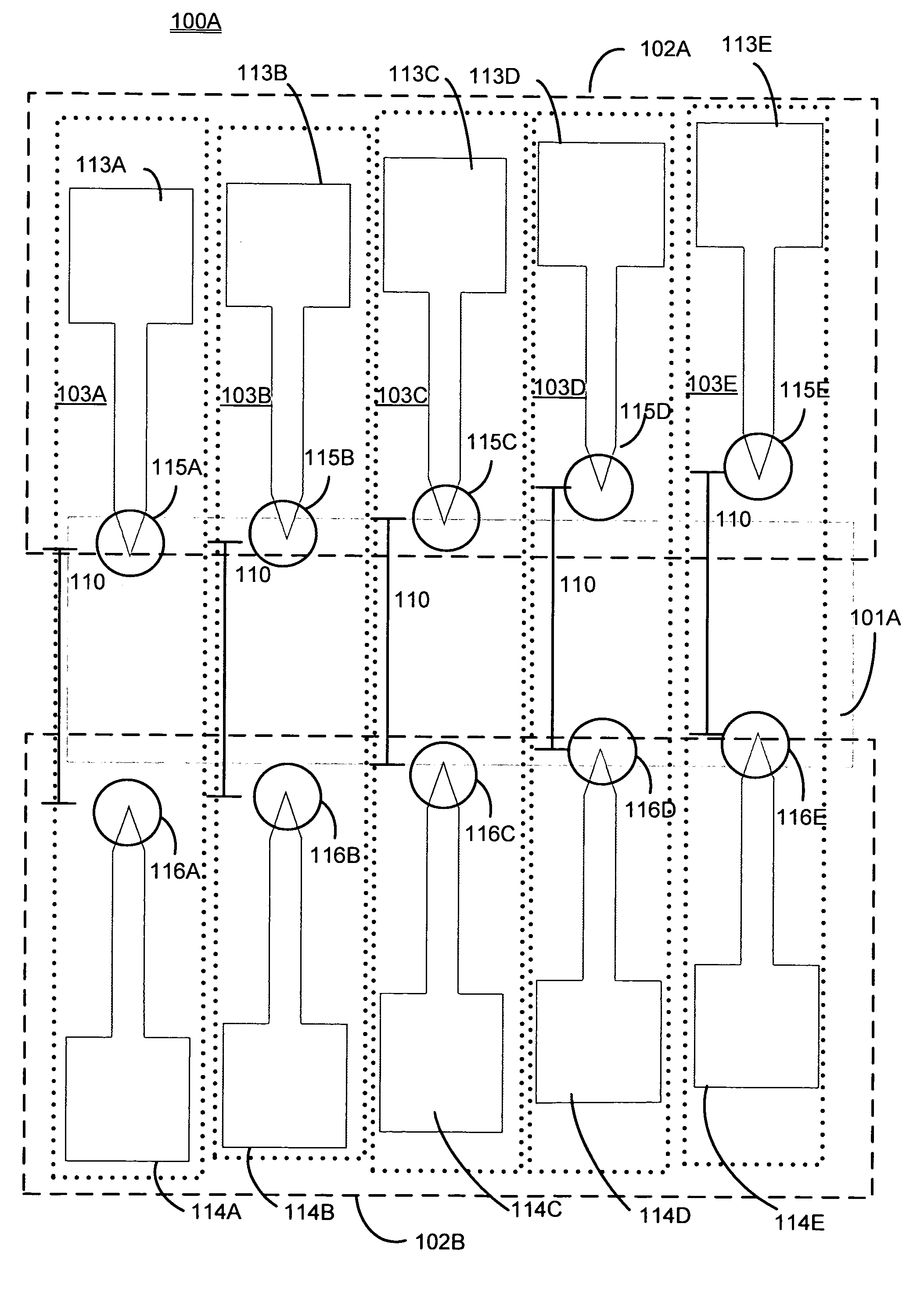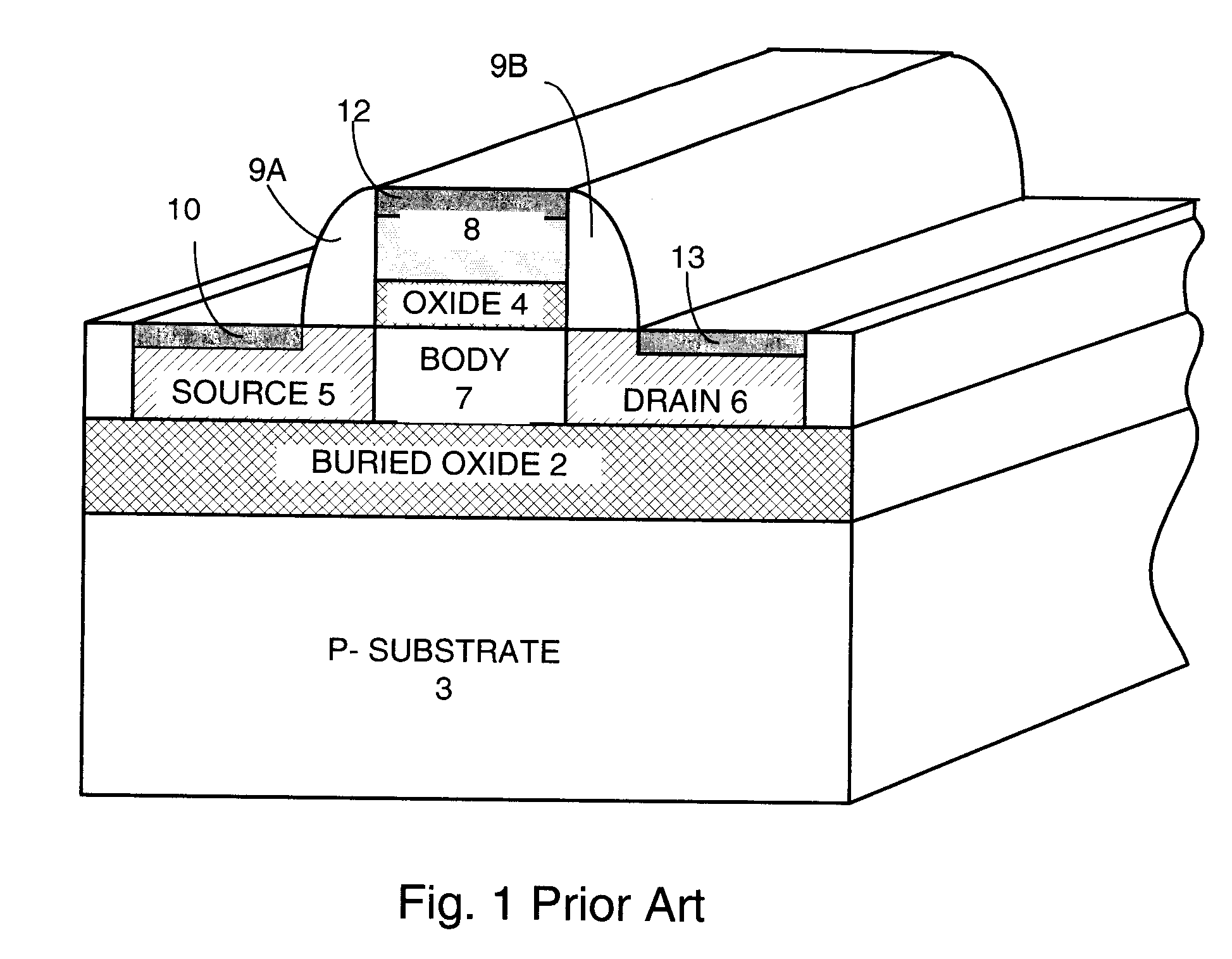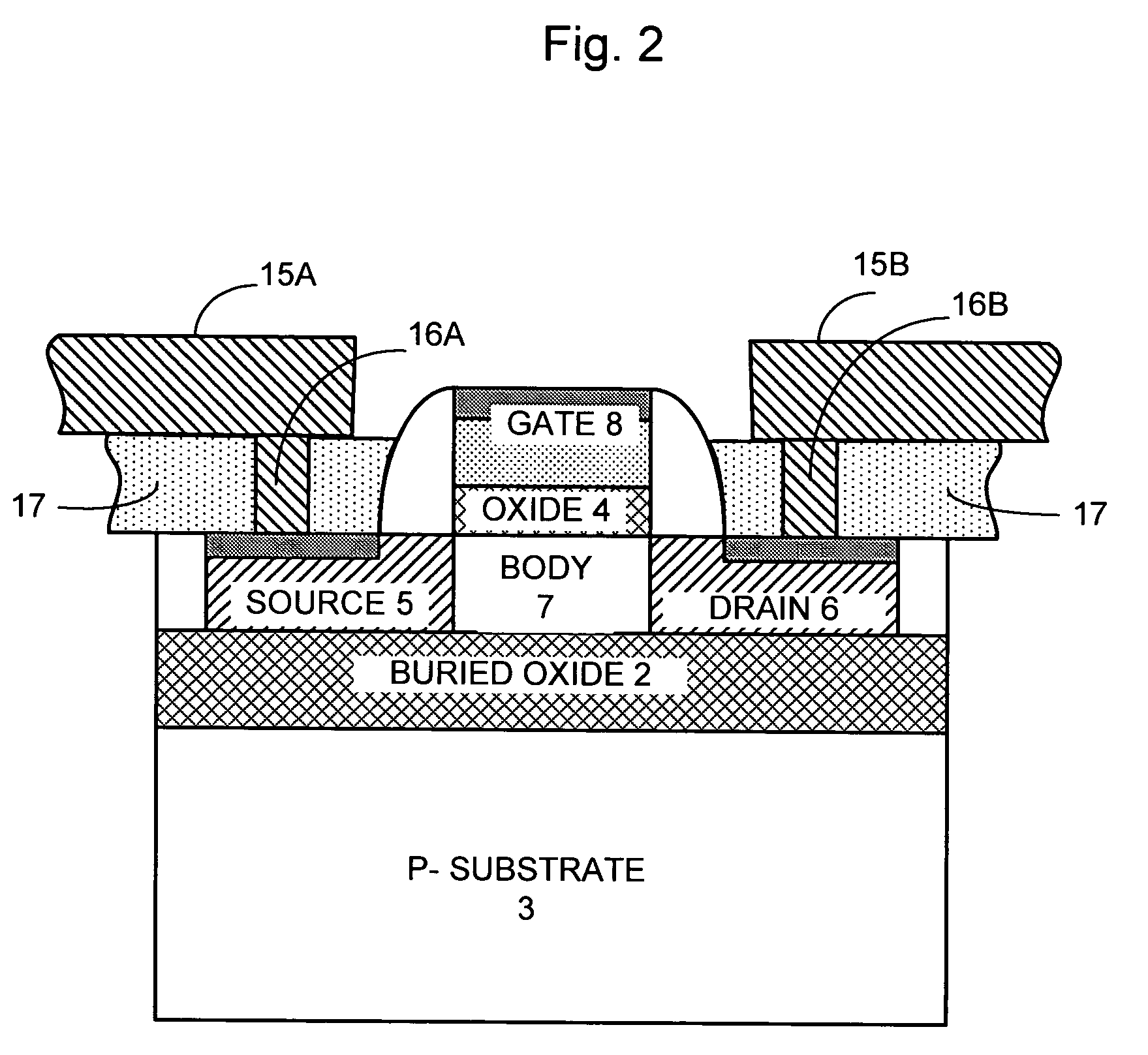Electrical open/short contact alignment structure for active region vs. gate region
a short contact, active region technology, applied in the direction of individual semiconductor device testing, semiconductor/solid-state device testing/measurement, instruments, etc., can solve the problems of large computing power, reduced physical chip size, complicated design and fabrication processes, etc., to achieve efficient measurement of alignment and bias, less design space
- Summary
- Abstract
- Description
- Claims
- Application Information
AI Technical Summary
Benefits of technology
Problems solved by technology
Method used
Image
Examples
case 3
[0057]Case 3 of FIG. 11 (illustrated in FIG. 12C) is an embodiment displaying both misalignment and bias. Bias can be inferred by the presence of 16 shorts indicating the silicon area has increased in size by 4 grid points. Examining the numerical open / short representation for polysilicon shapes on the left side, it could be inferred that the polysilicon shape pairs are shifted to right five grid points; however, the numerical open / short sequence in Column C indicates the right side is shifted to the right by one grid point. To resolve the alignment discrepancy of each side, the surplus of shorts is averaged between the two sides and the correct measurement of misalignment is three grid points to the right. Case 4 of FIG. 11 illustrates an unusable product or faulty test. The random occurrences of shorts and opens reveal faulty fabrication, damage to the device, or some other event rendering the device useless. Bias and misalignment cannot be measured based on such results.
[0058]The...
PUM
 Login to View More
Login to View More Abstract
Description
Claims
Application Information
 Login to View More
Login to View More - R&D
- Intellectual Property
- Life Sciences
- Materials
- Tech Scout
- Unparalleled Data Quality
- Higher Quality Content
- 60% Fewer Hallucinations
Browse by: Latest US Patents, China's latest patents, Technical Efficacy Thesaurus, Application Domain, Technology Topic, Popular Technical Reports.
© 2025 PatSnap. All rights reserved.Legal|Privacy policy|Modern Slavery Act Transparency Statement|Sitemap|About US| Contact US: help@patsnap.com



